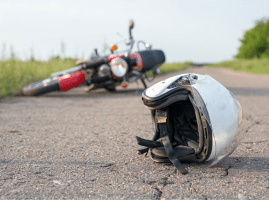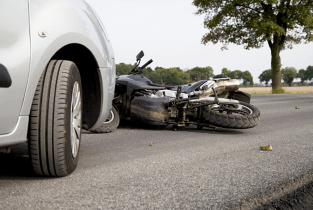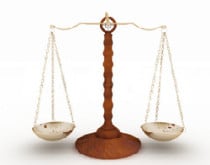6 Steps to Take Immediately Following Your Motorcycle Accident


Riding a motorcycle is such a thrilling experience. You get to experience the wind blowing while you’re flying across the scenery and feel like a modern-day superhero. However, thrilling experiences are never void of risks. You should always be extra careful when riding a motorcycle and take the necessary safety precautions. Despite your best efforts, you find yourself in an accident because of a slippery road or due to the negligent behavior of other reckless drivers.
If that ever happens, you should take the following 6 steps immediately following the crash.
1. Seek Immediate Medical Attention
First of all, you need to tend to your injuries. Whether you feel you’re not injured, feel mild pain, or can see visible wounds, your first priority is to call 911 and wait for emergency healthcare providers to arrive on the scene and give an independent medical assessment of your situation. Getting this professional assessment is necessary to prove the extent of the damage you’ve suffered; it’ll be used to determine the amount of compensation you’re entitled to.
Moreover, injuries resulting from motorcycle accidents are often severe, they may include any of the following:
- Concussion
- Traumatic brain injury
- Spinal cord injuries
- Broken bones
- Road rash
- Internal injuries
The more you delay getting treatment, the worse the ramifications of these injuries.
2. Report the Accident
While help is on the way, the second thing you need to do is report the accident. Even if the damage looks minor or you don’t feel like you’re suffering from serious injuries, you still need to call the police. Although it might feel like a hassle to do, reporting the accident is one of the best ways to prove the damage you or your property have sustained, which will further serve in ensuring fair compensation. Once you call the police, they’ll assess the scene, ask for witness statements, ask for both your and the other driver’s accounts, and file a report. Make sure to ask for a copy of this report to add to your case file. While you should be honest about the details of the accident, never admit fault.
3. Gather Evidence
In addition to the police report, you should gather evidence on your own. The evidence present in the accident scene right after onset is usually the best evidence you can present in your case, and the more evidence you can collect, the stronger your case will get. In case you’re physically capable of moving around, you should collect the following pieces of evidence:
- The other driver’s contact information, driver’s license, and plate number.
- Witness statement of any passersby; ask them if they’ll be willing to testify in court
- Pictures and videos of the damage sustained, including vehicle damage, physical injuries, and damaged property
4. Contact a Motorcycle Accident Lawyer
So far, you’ve been doing all you can do on your own, but venturing any further without legal guidance is not advisable at all. Although you’re not required by law to hire a lawyer, doing so will greatly maximize your recovery and compensation. Since motorcycle accident laws vary according to state, you’ll need a lawyer well-versed in your state’s laws and regulations.
For instance, Atlanta and other cities in the state of Georgia follow a comparative fault system; you can sue the at-fault party for damage, but if you’re partly at fault, the value of your fault will be deducted from the total compensation amount. You’ll then need to hire a motorcycle accident lawyer in Atlanta, GA to build your case in the way that best preserves your rights. Moreover, there’s a statute of limitations in each state during which you should file your case. Exceeding the deadline will almost always result in your case getting rejected.
5. Locate all Sources of Insurance
With your lawyer by your side, you can start approaching insurance companies to demand compensation. Keep in mind that insurance companies will start their own investigation and try their best to deny your claim or decrease its worth, that’s why you’ll need your lawyer to help you with bad faith cases. Moreover, your lawyer will help you locate all possible sources of insurance. You may be entitled to liability insurance from the vehicle that hit, uninsured motorist coverage, or any other coverage falling under uninsured motorist policies.
6. Keep a Journal
Finally, be sure to keep a journal in which you write about your experience. You’re bound to suffer from more physical symptoms down the course of treatment. It’s also possible to develop psychological trauma from the accident. Keeping a journal will help you remember the extent of physical and emotional damage you’ve sustained, which can be included in the compensation.

While traffic accidents are always hectic, motorcycle crashes are usually the worse of the lot. Unlike car accidents, victims of a motorcycle crash almost always end up with severe or fatal injuries. That’s why time is of the essence in these accidents; get immediate medical help, report the accident, and gather evidence. You’ll also need a motorcycle accident attorney to help you maximize the recovery potential.



